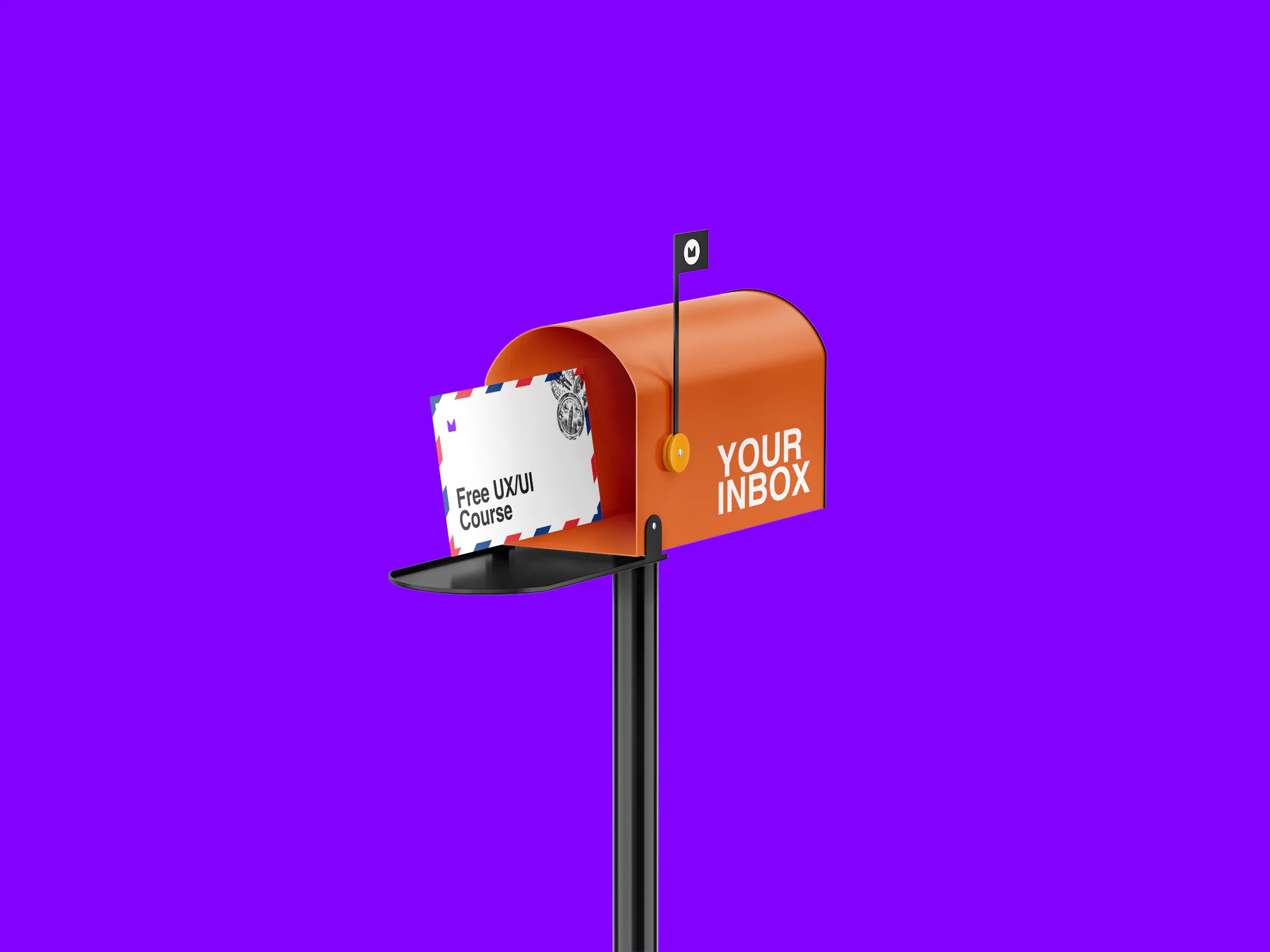

Get a Free UX/UI Course in Your Inbox Every Day for 15 Days
By the end of this three-week crash course, you'll have a much better understanding of the tech industry, the design craft, and all the knowledge you need to start building your career.

Get a Free UX/UI Course in Your Inbox Every Day for 15 Days
By the end of this three-week crash course, you'll have a much better understanding of the tech industry, the design craft, and all the knowledge you need to start building your career.

Embarking on a journey as a UX Designer without formal education or experience can feel overwhelming. The road is full of unknowns and doubts; initially, even formulating the right questions can seem difficult. However, rest assured that it is not an impossible task. With the right mindset and effective strategies, you can navigate this successfully. In this article, I'll share some key insights and lessons I've learned as a Product Designer, which have shaped my journey thus far.
Transitioning into a brand-new industry without any prior experience or formal education can be daunting. There will be times when you're overcome with self-doubt or when impostor syndrome gets the best of you. Thus, be prepared for a journey that requires hard work, determination, and persistence.
An important lesson I've gathered on this journey is the value of open communication, both with loved ones and within the workplace. Your supporters, both personal and professional, are ready to help you, provided you establish clear expectations and objectives. The act of setting boundaries and goals not only provides you with a roadmap to follow but also helps others to understand your aspirations. Consequently, they can support you more effectively on this journey.

Just as children absorb and learn through imitation from their surroundings and their parents, adults venturing into a new field follow a similar pattern. When we embark on a fresh path, particularly in an unfamiliar industry, we find our role models - those professionals whose work we admire and respect.
As you navigate this new landscape, seek out designers whose creations genuinely appeal to you. Take time to examine their work, delve into the reasoning behind their decisions, and highlight their strong points. This practice of careful observation and understanding will provide you with valuable insights that you can integrate into your own work. By doing so, you can further hone your skills, thereby developing a unique style that sets you apart.

No matter what path you choose, whether you seek traditional education, a bootcamp, or the path of self-learning, make sure you always keep an eye out on new designs, trends and stay connected with the industry.
Learning from your heroes often involves adopting their techniques. Did they design an app that resonated with you? Attempt to replicate it or recreate the parts that caught your attention. Is there a landing page that you found appealing? Dissect its structure and try to understand its workings. By immersing yourself in this way, you can intuitively grasp design heuristics that may be difficult to explain but can be understood through practical application.
Furthermore, don't confine your sources of inspiration to a specific industry. Draw inspiration from various products and services to foster innovative design solutions. Even when you're focused on a particular industry, you can often find that spark of inspiration elsewhere—in a pattern, an interaction, or established best practices across different sectors. This open-minded approach will allow you to add diversity and creativity to your design projects.

When I first plunged into the world of design, I took it upon myself to complete an online Figma course. I consumed numerous tutorials, picked up neat tricks, and genuinely believed I was equipped to tackle my first project. However, when the moment arrived, I felt overwhelmed and lost. The realization dawned on me that design transcended just Figma. Faced with a blank page, I was fraught with anxiety and had no idea where to begin.
However, this uncertainty gradually subsided once I enrolled in a design bootcamp, where I learned that design encompassed far more than just proficiency in a tool. It's about problem-solving, decision-making, and the ability to articulate those decisions effectively.
While watching Figma tutorials and becoming proficient in the tool is beneficial, it's equally crucial not to overlook the underlying process and not confine yourself to just that. Remember, the essence of design lies in its approach, not solely in its tools.

Just as every corporation benefits from the counsel of a board of directors, each individual can thrive with their personal board as well. This 'board' comprises a select few individuals who know you well and whom you trust deeply. They are those who will honestly point out your mistakes, provide sincere critique on your work, and genuinely care for you as an individual. Notably, they need not all belong to the design industry.
For instance, one of my own personal 'board members' is a Project Manager. Over the years, we've shared countless pieces of advice, openly discussed our earnings, exchanged negotiation strategies, deliberated over significant career decisions, and co-strategized. This level of support and mutual mentorship has proven invaluable in my journey. Your personal board becomes your safe space for growth and development, allowing you to learn from diverse perspectives and experiences.

In conclusion, venturing into UX design without formal education or experience can indeed be a challenging endeavor, but it's by no means an impossible task. The key lies in understanding that it's a journey that requires patience, dedication, open communication, and active learning. As you navigate this path, find your superheroes and draw inspiration from their work. Constantly keep an eye out for innovative designs and trends, and apply what you learn in your projects.
Finally, remember that your strength as a designer lies not in mastering tools but in understanding and applying design principles. Keep these lessons in mind, and you will be well on your way to a successful career in UX design.